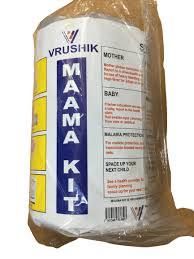Mama Kits are essential packages designed to provide the necessary supplies for safe childbirth, particularly in low-resource settings like Uganda. These kits are crucial for ensuring that women have access to sterile and adequate materials needed during delivery, which can significantly reduce maternal and neonatal mortality rates.
Key Components of a Mama Kit
A typical Mama Kit includes:
- Plastic Sheeting: For hygienic surfaces during delivery.
- Razor Blades: For cutting the umbilical cord.
- Cotton Wool: Used for cleaning and dressing wounds.
- Gauze Pads: For additional wound care and hygiene.
- Soap: For handwashing to maintain cleanliness.
- Surgical Gloves: To ensure a sterile environment during delivery.
- Examination Gloves: For healthcare providers assisting with the delivery.
- Cord Ties: To securely tie the umbilical cord after birth.
- Child Health Card: For recording important health information.
Importance of Mama Kits
- Access to Healthcare: In many hospitals and clinics in Uganda, women are required to bring their own supplies to give birth. Without a Mama Kit, they may be denied care or sent away, which can lead to dangerous situations.
- Reducing Maternal Mortality: Research has shown that providing these kits can significantly lower the risk of complications during childbirth and improve overall maternal health outcomes.
- Encouraging Facility-Based Deliveries: By ensuring that women have the necessary supplies, Mama Kits promote deliveries in healthcare facilities rather than at home, where risks are higher.
Cost and Distribution
- Each Mama Kit typically costs around $3 to $7, depending on the organization distributing them. Many NGOs and health organizations work to provide these kits to pregnant women in need, often through community outreach programs.
How to Purchase Mama Kits
If you are interested in purchasing Mama Kits to take with you or support an organization that distributes them:
1. Contact Local NGOs: Reach out to organizations operating in Uganda, such as Bright Hope or UNFPA, which facilitate the distribution of Mama Kits.
2. Direct Donations: Many organizations allow you to donate directly towards the purchase of Mama Kits, ensuring that your contribution goes directly to helping mothers in need.
3. Community Health Initiatives: Engage with local health initiatives or clinics that may have programs for distributing Mama Kits.



